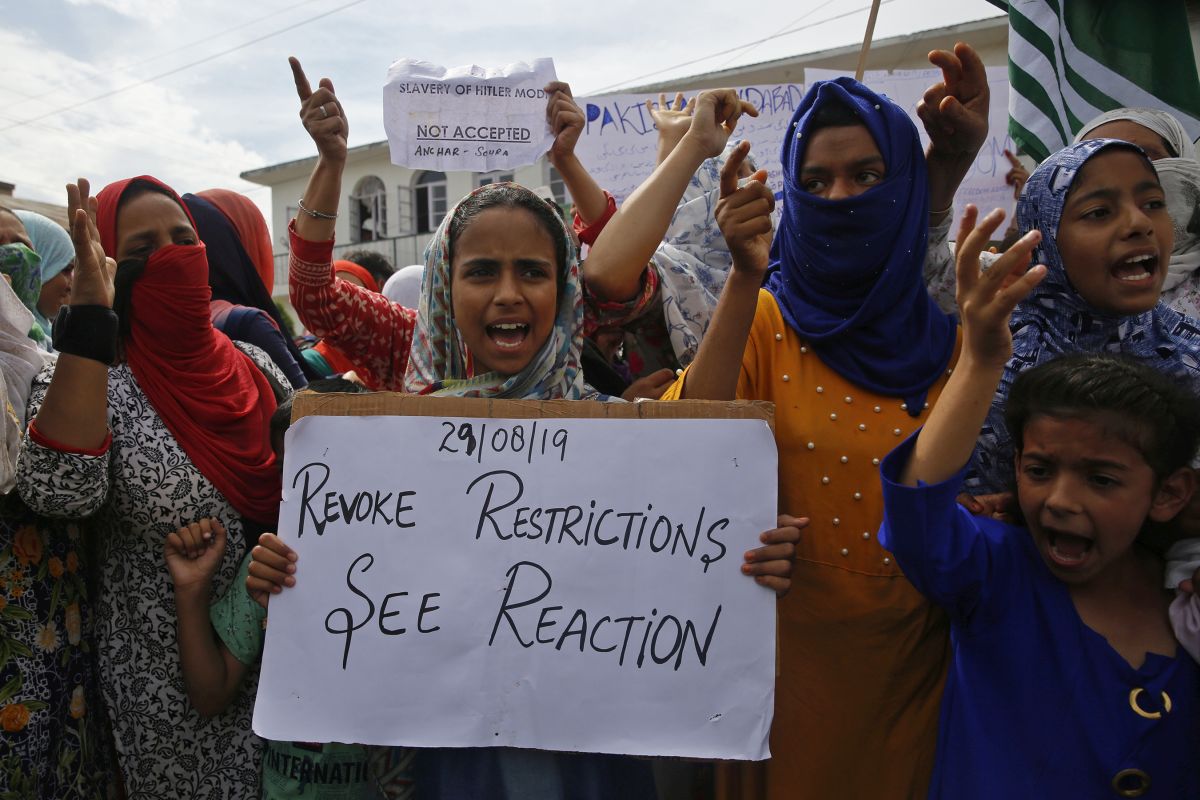Former US Defence Secretary James Mattis came out with acerbic and hard-hitting comments on Pakistan on September 3, coinciding with the release of his autobiography in New York. The outburst is absolutely valid and articulated in right earnest leaving no room for denial or rebuttal. Mattis is very forthright in his book in labelling Pakistan as the most dangerous country as it is upbeat with nuclear possessions and a very high level of radicalisation. Mattis is perhaps the right person to evaluate Pakistan in professional and objective terms as he dealt with Pakistan for many years, as a senior member of the Obama administration and as head and the General of the central military command closely overseeing Pakistan and Afghanistan.
Mattis reckons that Pakistan views all geopolitics through the prism of its hostility towards India. He further assesses that Pakistan shaped its foreign policy, with collaboration of its armed forces and the ISI, for Afghanistan to have a government which is starkly anti- Indian. Mattis’ credibility seems unquestionable due to his profound knowledge of South Asian politics. Mattis has rightly warned concerned quarters that Pakistan being the fastest growing nuclear arsenal state in the world should not be allowed to let nuclear arms and knowhow to fall into the hands of Pakistan- based terrorists as the outcome would be severely disastrous. Quite rightly, Mattis in his autobiography “Call Sign Chaos’’ states that there is a glaring bankruptcy of leaders in Pakistan with a vision for the future.
Advertisement
That’s exactly why President Obama made his operational plans so secretive in the run-up to the US Navy Seal operation that led to the killing of Osama bin Laden in Abottabad in May 2011. We can, therefore, see the trust and confidence deficit between the US and Pakistan then and now especially after the failed summit between President Trump and Prime Minister Imran Khan. During the anti-bin Laden offensive operation, Mattis was a Marine Corps General and it were the Marines who carried out the conclusive operation against bin Laden. Mattis’ candid remarks against Pakistan especially terming it as the most dangerous country could not have been more timely.
It is because Pakistan, piqued by developments related to Kashmir, seems to have lost its way and is drumming up anti-Indian propaganda to draw global attention. The moves look more desperate after Islamabad failed to elicit any support from the Muslim world. Pakistan continues to shed crocodile tears for the Kashmiri Muslims in a bid to evoke sympathy though a majority of nations genuinely feel Pakistan is a near-failed state with hardly any future. It remains the terrorists’ breeding centre and seeks to blackmail the US that it has the levers to control the Afghan Taliban. In reality, no terror groups or terrorists are under its control. Pakistan’s frustration with India is also seen in its moves to propel Khalistani resurgence in India.
As part of this renewed initiative, the Pakistan ISI, at the prompting of its cohorts, has stepped up efforts to woo pro-Khalistani forces in Canada, the US and UK. Espousing the cause of the Kashmiris is merely a pretext. Encouraging Khalistani propaganda and dovetailing this happenings in Kashmir is part of the blueprint which professes to ‘bleed India with a thousand cuts ‘ so as to remember the humiliating defeat in 1971 and creation of Bangladesh as an independent nation. The current happenings coincide with the visit of Sikh pilgrims to Nankana Sahib and the Kartarpur corridor as Sikhs the world over are poised to mark the 550th birth anniversary Guru Nanak.
Pakistan, afflicted by frustration in the wake of Kashmir developments after being ignored by Muslim countries, is wooing overseas Sikhs to drive a wedge between this martial community and the Indian establishment. Pakistan is unlikely to succeed in its designs to win the Sikhs through its ugly agenda yet it is imperative for Indian diplomacy and security agencies to foil these moves. Pakistan needs to be exposed for its ongoing excesses being perpetrated on Sikhs settled in Pakistan, particularly on the forced conversion of a Sikh teenaged girl and her marriage to a Muslim under intimidation and duress. Imran Khan’s hollow claims of protecting religious minorities during his rule stands shamefully bared in public domain.
The recurring frustration is expected to lead to more desperate acts as the vandalism and violence targeting the Indian High Commission in London on September 3 carried out by Pakistanis in Britain. The UK government has strongly condemned such dastardly acts, describing them as deplorable. More such acts are likely in other Indian diplomatic missions as Pakistan is now on a violent spree and friendless. Its failing economy has added to its woes. In the not so distant future, its acts emanating out of desperation will prove Mattis right when he says Pakistan is the most dangerous country in the world.
His assessment of Pakistan merits dissemination in the right quarters to expose Pakistan’s agenda to foster dread and terror in the world, specially in South Asia. Fresh inputs from intelligence sources, meanwhile, indicate a plan to infiltrate a sizeable number of terrorists into Kashmir amid reports of arrest two Lashkar-e- Toiba (LeT) terrorists by Indian security forces. Vigil is therefore called for.
(The writer is a security analyst and a columnist on topical security issues. He was also the National Security Advisor to the Prime Minister of Mauritius. The views expressed are personal)











